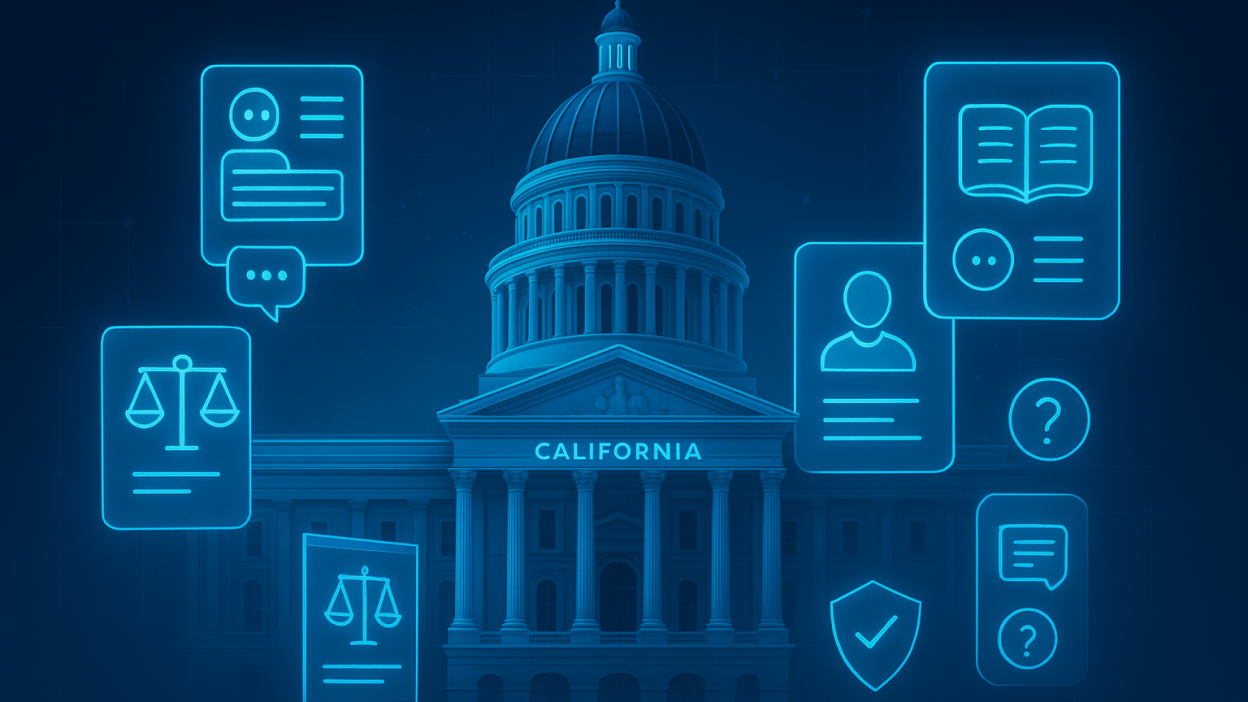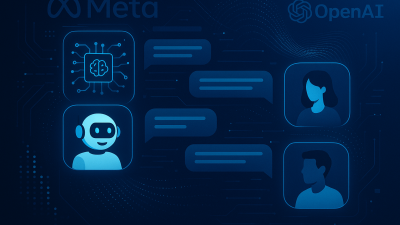California Moves to Regulate AI Companion Chatbots: What It Means for Users and Developers
Artificial intelligence has rapidly transformed the way we communicate, seek assistance, and access services. Among the most popular applications are AI companion chatbots—virtual agents designed to simulate human-like interactions, provide emotional support, and offer guidance across various domains. From helping users manage stress to keeping them company during isolation, these AI companions are increasingly integrated into people’s personal lives.
However, the rise of AI companion chatbots also raises significant concerns. As these systems become more sophisticated, issues around data privacy, user safety, manipulation, and misinformation have come to the forefront. In light of these concerns, California is on the verge of passing a bill that would introduce regulations for AI companion chatbots, marking one of the first legislative efforts in the U.S. to create a structured framework around the ethical and responsible use of conversational AI.
Why Is Regulation Necessary for AI Companion Chatbots?
AI companion chatbots are not ordinary applications. Their ability to learn from user interactions and adapt to emotions makes them powerful tools—but also exposes vulnerabilities. Here’s why regulation is becoming critical:
1. Protecting Sensitive User Data
Companion chatbots often collect deeply personal information—mental health concerns, relationship issues, or financial stress. Without regulation, this data could be misused or fall into the wrong hands. Clear guidelines are needed to ensure that users’ privacy is protected and data is handled transparently.
2. Preventing Manipulation and Exploitation
Some users, particularly the elderly, teens, or those struggling with mental health issues, may become overly reliant on chatbots for emotional support. In such cases, it’s essential that AI systems are designed to promote healthy interactions and discourage dependency or exploitative practices.
3. Ensuring Transparency and Trust
Most users are unaware of how AI companion chatbots operate. Without disclosures about how responses are generated or how data is used, users may assume the system understands or empathizes more than it truly does. Regulations would require chatbot providers to be upfront about the system’s capabilities and limitations.
4. Addressing Mental Health Risks
While AI companions can offer supportive interaction, they are not substitutes for professional mental health care. Inaccurate advice or insensitive responses could cause harm rather than help. Regulations would encourage developers to set boundaries and include warnings that prompt users to seek professional assistance when necessary.
What Will the Proposed California Bill Cover?
Though the exact provisions are still being refined, experts expect the bill to address several critical areas to ensure responsible development and use of AI companion chatbots.
Data Protection and Consent
-
Chatbots must disclose what data they collect and how it will be used.
-
Users must be informed and give explicit consent before data is stored or shared.
-
Safeguards must be implemented to prevent unauthorized access or breaches.
Transparency and Accountability
-
Developers must explain the chatbot’s AI-driven nature and limitations.
-
Clear disclaimers should be provided to prevent users from assuming medical or psychological expertise where it doesn’t exist.
Ethical Guidelines and Safety Nets
-
Systems must be designed to avoid manipulation or harmful advice.
-
Emergency prompts should direct users to professional help if serious issues are detected.
Certification and Compliance
-
Developers may need to undergo audits or certification processes to ensure adherence to ethical and privacy standards.
How Will Users Benefit?
Users of AI companion chatbots stand to gain significantly from these regulatory changes:
-
Enhanced Privacy Protections:
Users will have more control over their data and understand how it’s used. -
Increased Trust and Confidence:
Transparent disclosures and ethical safeguards will reduce concerns about misuse. -
Clearer Boundaries:
Users will know the chatbot’s capabilities and limitations, helping them set realistic expectations. -
Improved Mental Wellbeing:
Emergency protocols and disclaimers will ensure users are directed to appropriate professional support when needed.
What Does This Mean for Developers?
For developers and AI companies, this bill may initially seem like a challenge—but it offers numerous long-term benefits:
-
Market Leadership Through Compliance:
Companies that build ethical, transparent, and compliant chatbots will stand out in a crowded marketplace. -
Risk Reduction:
Clear guidelines help mitigate legal risks and reduce potential harm, making products safer for users. -
Innovation Opportunities:
By designing AI with safety and privacy at the forefront, developers can create new features that enhance user experience while adhering to regulations. -
Public Trust and Adoption:
Users are more likely to engage with technology they perceive as safe, reliable, and trustworthy.
Broader Implications: California as a Model for AI Governance
California has historically been at the forefront of technology regulation, from data privacy laws like the California Consumer Privacy Act (CCPA) to environmental policies influencing national standards. If passed, this AI companion chatbot bill could serve as a model for other states and countries seeking to regulate AI technologies.
As discussions around AI ethics, safety, and accountability gather momentum globally, California’s efforts could catalyze broader frameworks and cross-industry collaboration aimed at building AI systems that prioritize human well-being.
Expert Opinions
AI ethicists and tech leaders alike believe that regulation is overdue. Dr. Elena Hart, a digital ethics researcher, remarked, “AI companion chatbots blur the line between technology and emotional connection. Without safeguards, these tools could exploit vulnerabilities rather than assist users. California’s move is a step toward creating a safer space for AI-human interactions.”
Meanwhile, developers argue that clear regulations will help them innovate responsibly. “We need guardrails that guide us without stifling creativity,” says Jason Lin, founder of a chatbot startup. “Ethical frameworks encourage trust and open doors for partnerships in healthcare and education.”
Looking Ahead
As AI companion chatbots become more mainstream, the need for regulation is only expected to grow. California’s bill reflects a growing consensus that technology must be developed in ways that respect privacy, promote user safety, and foster trust.
Whether you’re a user, developer, or policymaker, this legislation signals a critical turning point in AI governance. It’s not about slowing innovation—it’s about ensuring that AI is a force for good, built on a foundation of transparency, ethics, and responsibility.
The proposed California bill regulating AI companion chatbots is more than just legislation—it’s a call to align technology with human values. By introducing safeguards around data privacy, ethical use, and transparency, the state is setting a precedent that balances innovation with accountability. As AI continues to shape our lives, efforts like these will help ensure that technology serves people in safe, supportive, and trustworthy ways.
Stay Ahead in Tech with The Bytebeam
Get the latest insights, trends, and expert analysis on AI, data privacy, tech policy, and more—delivered straight to your inbox. Don’t miss out on groundbreaking developments shaping the future of technology.
Subscribe to The Bytebeam Newsletter Today!
Note: Logos and brand names are the property of their respective owners. This image is for illustrative purposes only and does not imply endorsement by the mentioned companies.



